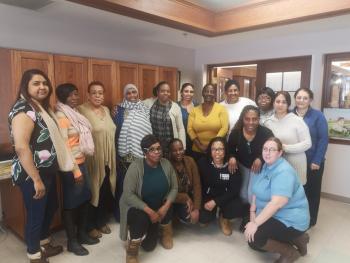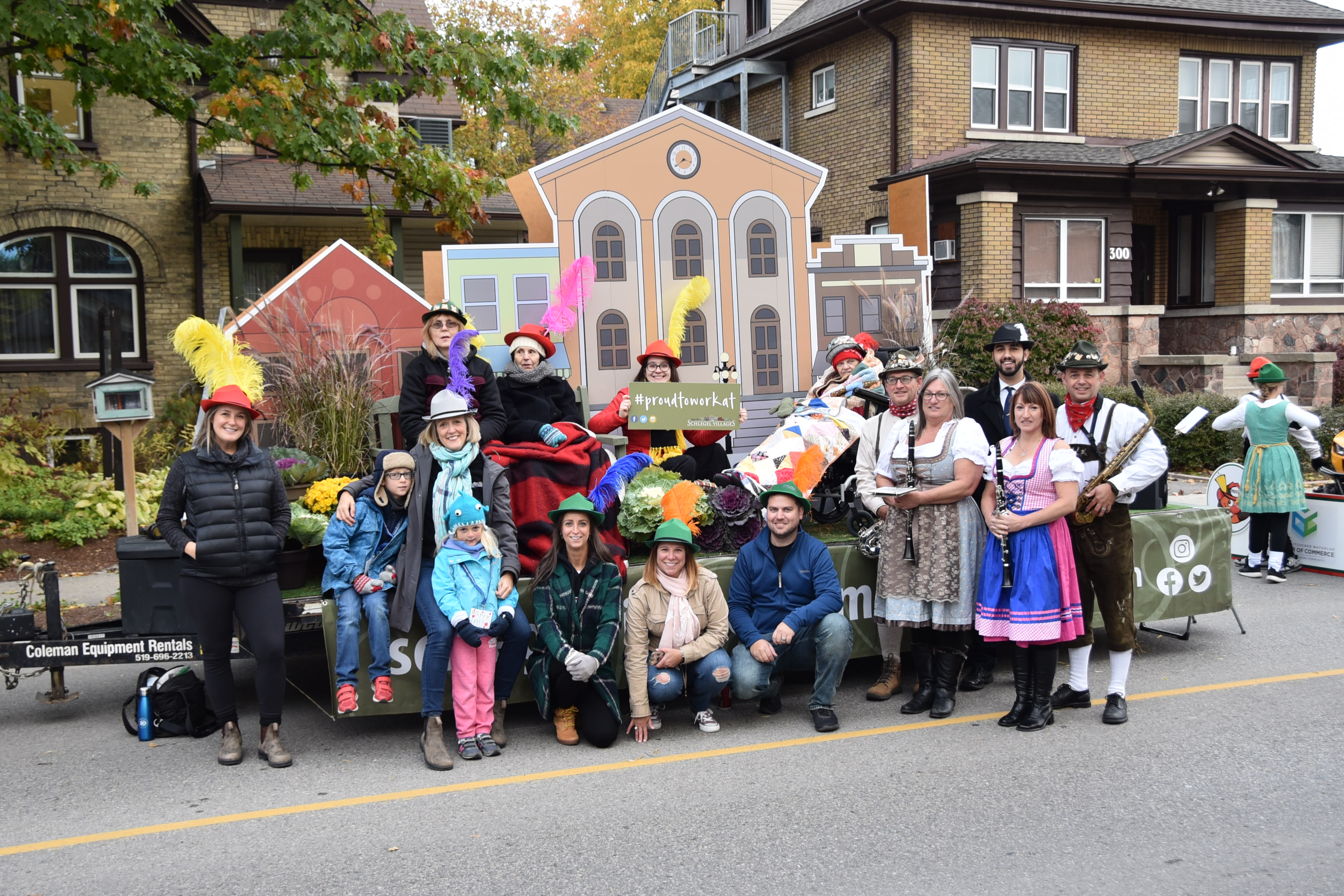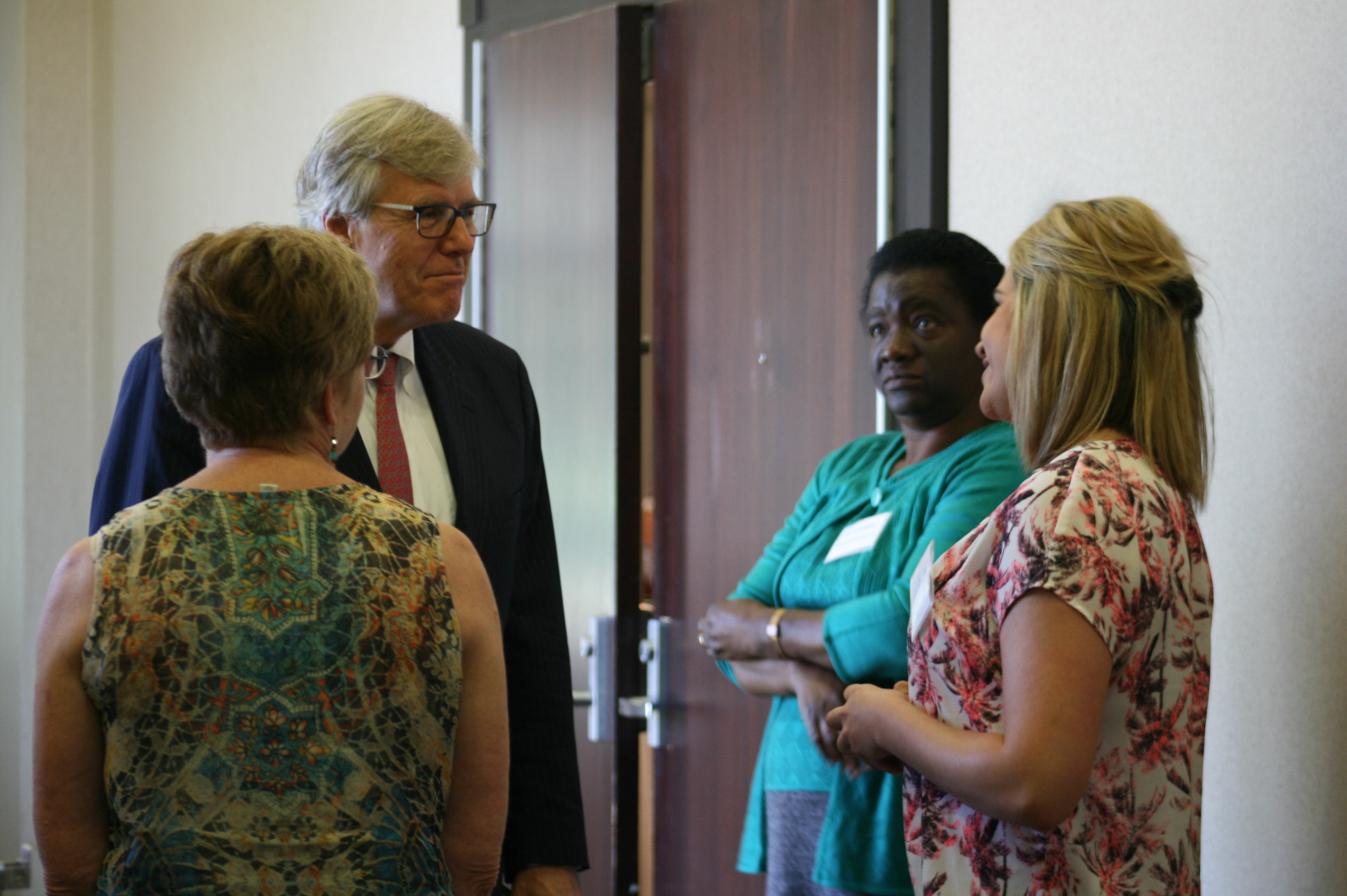The vast majority of people who move into a long-term care home will make no more moves in their lifetime. Ideally, they’ll move into a place where they can forge new friendships and find meaning and joy in their days, but there is no denying that end-of-life is a matter of fact in a long-term care setting.
The team members who support these residents are tasked with some of the most complicated emotions and conversations in the human experience. They help residents and their loved ones navigate deeply personal thoughts and feelings surrounding death and loss, yet rarely do they have any formal training to help. A new training program offered through the Ontario Centre for Learning, Research and Innovation in Long-Term Care at Bruyère and Algonquin College aims to fill this crucial gap.

Team members from Sandalwood Park had to open up about
their own experiences with end-of-lfe in order to better
understand how to communicate with residents and their
loved ones about the subject.
The Communication at End-of-Life (CEoL) program is specifically designed for Personal Support Workers to helps them re-imagine palliative care and look at life and death from different perspectives.
“It’s very emotional,” says Jennifer Gould, one of two trainers from the Village of Sandalwood Park offering the program to team members there. “You’re talking about death and how you perceive dying. To be successful in this two-day program, you need to be vulnerable, you need to be open-minded and you need to be willing to open up to some self-awareness.”
Once a person has mined their own feelings and emotions, they’re more equipped to support others as they face the same questions, and the CEoL training provides participants with a better understanding of how they can handle these delicate conversations. As Jennifer sees it, becoming a better listener from a place of empathy is a critical pillar of support, and this is a major focus of the training program, as well as:
· Discussing definitions, myths, and misconceptions related to palliative and end-of-life care,
· How values, beliefs, and experiences can inform one’s thoughts, attitudes, and care practices,
· Understanding holistic care and the eight domains associated with illness and bereavement,
· Understanding the four capacities required to establish a therapeutic relationship,
· Practicing therapeutic communication skills: listening, paraphrasing, reflecting, summarizing,
· Developing skills in communication with residents, families, and interdisciplinary teams.

Working through the CEoL training together.
Elaine Ashwood has been a PSW at Sandalwood Park for 10 years, and she says the training helped her learn how to share more of her own experience in order to work together with families to support a loved one at the end of their life.
“I learned how to share more and how we can work together with the families,” she says, as her fellow PSW Chandra Ali nods her head in agreement
“It was very emotional,” Chandra adds. “I have a lot of experience but you learn how to stand with the families a little bit more and show them how to have a little more courage and stand a little stronger.
“You give them that courage to carry on with their life.”
Chandra, Elaine and Jennifer all agree that a difficult sense of acceptance must happen during this final stage of life, and the CEoL training offers caregivers a path to such understanding.
Visit the Ontario Centres for Learning, Research and Innovation in Long-Term Care here to learn more about this program.
- Previous
- View All News
- Next



























































































































































































































































































































































































































































































